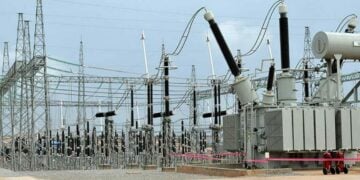The National Bureau of Statistics (NBS) recently released the inflation figures for month of April 2022. According to the NBS, inflation stood at 16.82 per cent, a jump from 15.92 per cent which it was in March. The current inflation figure is the highest since September 2021.
While inflation is often described as the rate at which prices of goods and services rise within a particular period, it can also be said to be the decline of purchasing power of a given currency over time.
It is an estimate of the rate at which the decline in purchasing power occurs can be reflected in the increase of an average price level of a basket of selected goods and services in an economy over some period of time. The rise in the general level of prices, often expressed as a percentage, means that a unit of currency effectively buys less than it did in prior periods.
According to the NBS, inflation was impacted by higher energy and transportation costs which rose to 14.2 per cent year on year in April 2022, from 13.9 per cent in the prior month. This is the highest year on year increases may 2017. Driven by the rise in the prices of cooking gas 12.5 kg cylinder of cooking gas up is 9.1 per year over year and diesel of 176 per cent year over year from N257.19 in April 2021 to N654.46 in April 2020.
Also, food inflation rose to 18.4 per cent year over year in April 2022 from 17.2 per cent in March 2022. This was on the back of the huge demand during the Eastern Ramadan festivities, as well as the winding down of the harvest season.
Typically, inflation occurs when prices rise due to increases in production costs, such as raw materials and wages. It can also be due to a surge in demand for products and services which makes consumers to be willing to pay more for the product.
Across the world, inflation rate is a cause for concern for governments and majorly central banks because of its effect on the purchasing power as well as on investments. Basically it makes money saved today less valuable tomorrow.
Inflation erodes a consumer’s purchasing power and reduces the real interest rate on investments. For example, if an investor earned five per cent from investments in stocks and bonds, but the inflation rate was per cent, the investor only earned two per cent in real terms.
In the case of Nigeria where inflation is nearly 17 per cent and average interest on savings account is around two per cent, it means if you put your money in sayings at two per cent, your real interest is in the negative of 15 per cent.
Also, the value of the naira has been on the decline sinking below the N600 per dollar rate due to foreign exchange market bottlenecks and rising demand. The pressure on the naira has persisted due to the influence of political activities on demand amidst reduced forex supply by the central bank.
Since the beginning of this month, the naira has depreciated by N16 or 2.6 per cent from N590 to one dollar on May 4, to N606 last week Friday, given the reduced dollar proceeds from oil sales and increasing demand ahead of the 2023 election.
Thus, a high inflation alongside a depreciating naira can have on your savings and investments if action is not taken to reduce the impacts. According to investment professional, Ayodeji Ebo, there is need to take action if you if you plan to optimise your savings and investments while preserving your capital.
How does high inflation affect you and what should you do in such a period? If you kept N1 million in your savings account with last year, the savings will be worth N814,000 in real terms, signifying a loss of purchasing power of N186,000. Basically, the N1 million is worth N814,000 in terms of what it can buy compared to a year ago. However, if you have invested in a fixed income instruments even at five per cent per-annum, the loss in purchasing power would have reduced by N50,000.
While it logical to only make investments that the return is higher than the inflation rate, Ebo explained that the focus should be on how to reduce the impacts of inflation or your savings by never leaving your money idle, even if the potential return will not completely compensate you for high inflation.
“You can invest in fixed income instruments like FGN savings bond, FGN Bonds and commercial paper with low risk and better returns compared to Treasury bills” he advised. Also with as the depreciating value of the naira the worth of your savings in dollar terms he said “it is advisable to have a significant portion of your investments in dollars to add value to your dollar savings rather than leaving the funds in your domiciliary account.
“You can invest in a fixed income dollar fund or mutual funds. The potential interest rate varies between three and seven per cents and for investors with moderate to high risk tolerance. You can consider foreign stocks with strong fundamentals and exchange traded funds.




